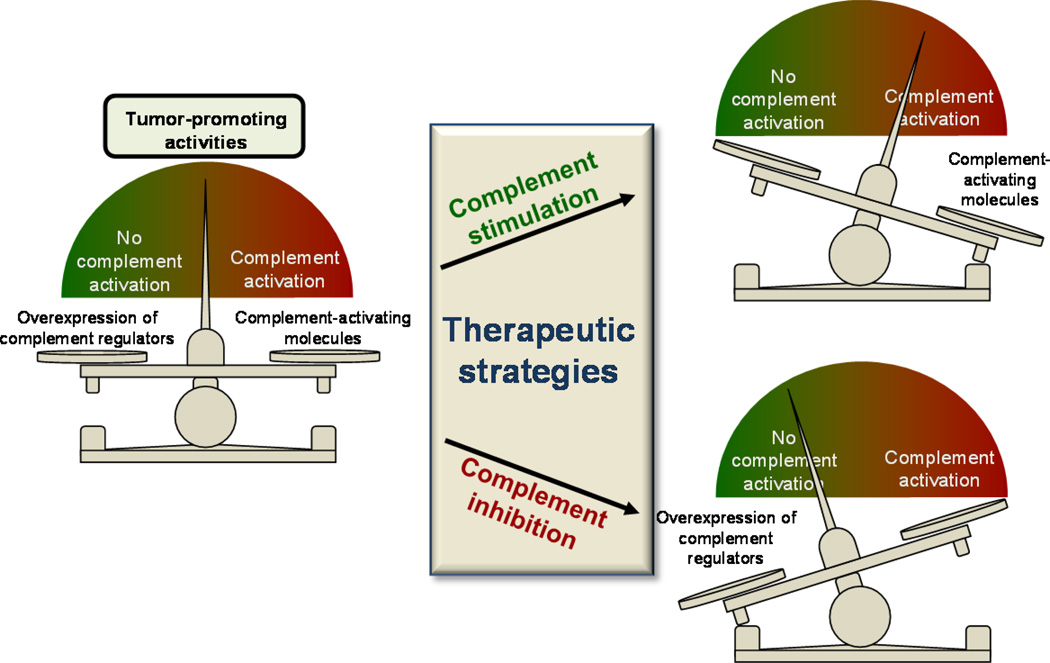Fig. 4.
Potentially useful, although antagonistic, complement-based anti-cancer therapeutic strategies. Both activation and inhibition of complement can be proposed to treat cancer. In both cases, the cancer-promoting balance between activation and protection would be destroyed. For example, elimination of complement regulators would lead to an increase in tumor-control activities mediated by complement (e.g., lysis, opsonization, immunostimulation). On the other hand, complement inhibition would eliminate tumor-promoting activities, such as immunosuppression, chronic inflammation, or angiogenesis, which may be hampering other immune effector responses. In this context, combination with immunotherapies or chemotherapies would be advantageous.

